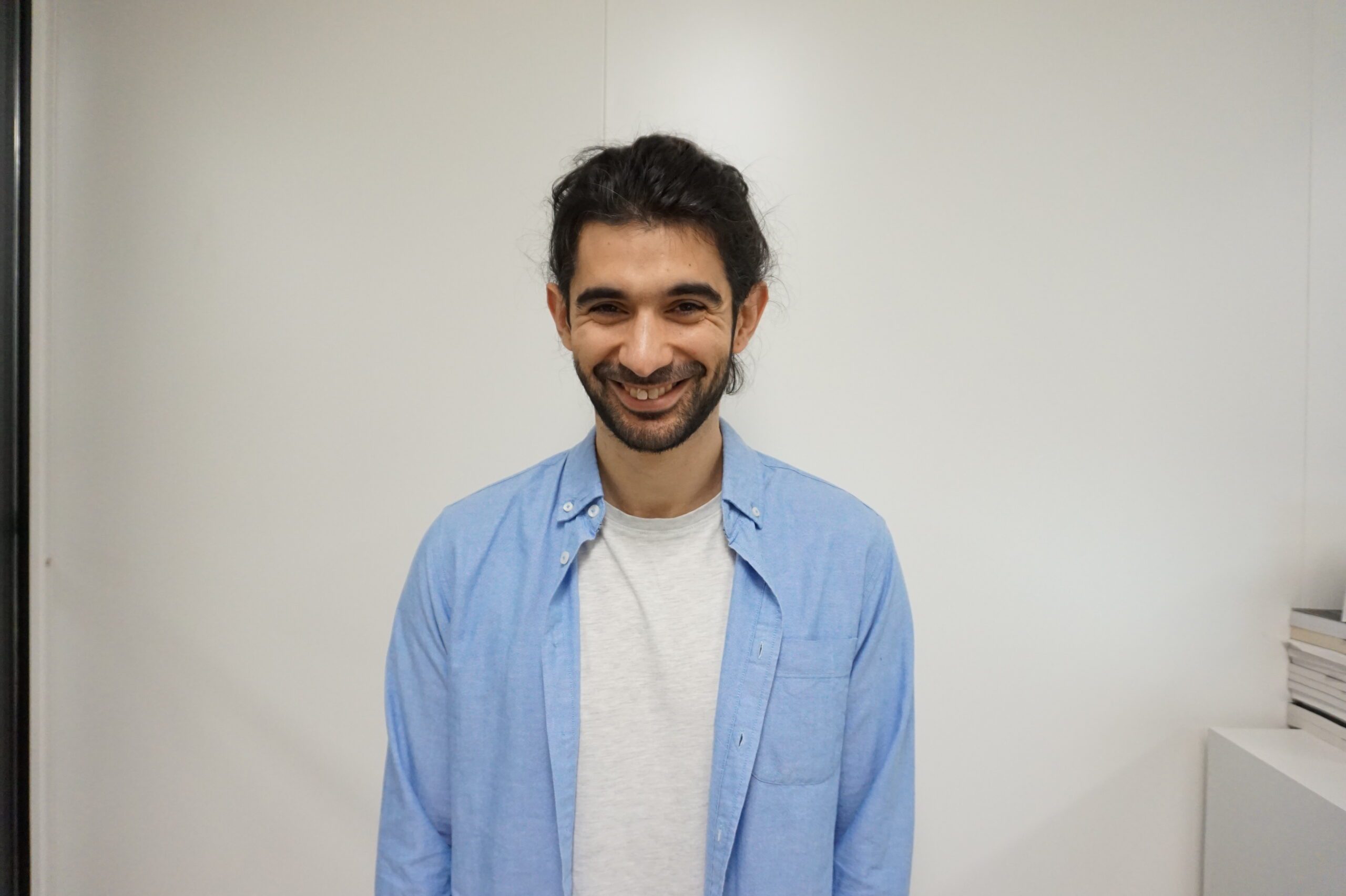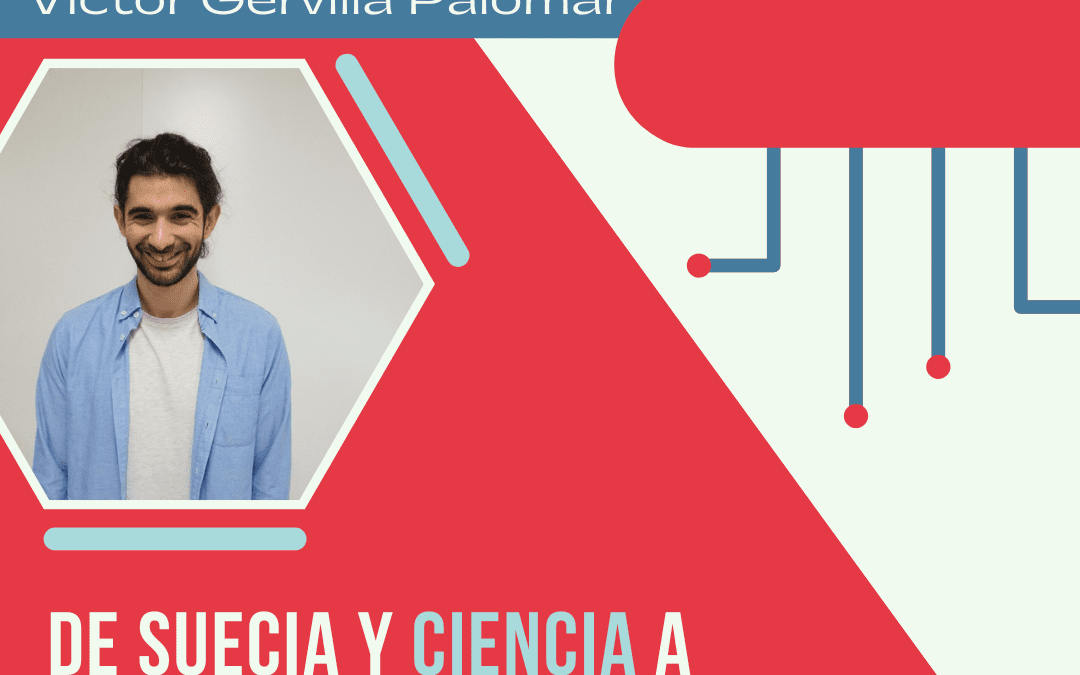1. Who are you since you are currently working in the industrial field?
I am Víctor, a physicist from Granada specialized in simulations, and I work as a software engineer at Qblox (Delft). This company produces electronic components to control quantum processors, and I contribute by helping to develop an interface for designing quantum experiments and translating them into machine language.
2. Why did you decide to make the change from academia to industry?
The main reason is that the industry offers a fairly wide range of possibilities. I am a curious person by nature and the idea of being able to change roles and even sectors during my career was quite appealing to me. In addition, it is possible to see the fruits of labor almost immediately, for example seeing satisfied customers after using the new product you have developed, or how new marketing strategies (who knows what you may end up working on?) generate an increase in profit .
Another thing that is important to me when thinking about the future is having some freedom when choosing where to live. Progressing through university may mean having to work at one of the few universities in the world, perhaps for a long time. However, the industry is much more versatile in this aspect because the specialization focuses more on “skills” like programming, communicating with clients, or leading teams, and these skills are in demand in the technology industry. And even out of it! It is not uncommon to see professionals move to the financial sector, for example, or even to the legal sector to work with patents, for example.
3. Do you see a greater projection in the industry than in the academy?
In general, yes, and the more innovative the sector, the greater the projection: popular sectors such as biotechnology or quantum computing grow at a very fast pace and generate many jobs, so one can easily change roles and accumulate Lots of experience (although sometimes this means temporarily “leveling down”). The other side of the coin is that this projection may only be temporary, since the market is unpredictable. It may happen that a major investor moves into a newer and more interesting field and the company has to cut staff. It could also be the case that a certain material or component could not be supplied, causing the bankruptcy of the company. Innovative sectors are in the risk zone and it is not uncommon for these things to happen. In more established sectors,
The fact that the skills valued in the industry are of a more transversal nature is another advantage compared to the university, since in the latter one needs to be an expert in very specific topics, and the job possibilities are usually limited to a few centers in which these lines of research are developed. On the other hand, if you have a lot of academic experience when you transition into industry, for example after doing a postdoc, the jobs you can apply for become much more specialized and scarce (they tend to be research positions in R&D departments) and, as a consequence, the market begins to look more like academia. Having too much industry experience can be almost as detrimental as having too little.
In any case, I believe that to have a good career in the industry it is essential to adapt and be willing to accept changes.
4. Where do you see more competition, at the work level?
In college, definitely. The industry needs a large number of professionals of all kinds to create functional and efficient products from a scientific finding, while these findings come, in most cases, from a few academic professionals. In addition, evolving as a researcher at the university necessarily implies finding a permanent position as a professor at some point, which is difficult and requires more and more time. But it must be said, the industry is subject to market uncertainties and sometimes the competition can get very tough. For example, a while ago big tech laid off hundreds of artificial intelligence experts and saturated the market,
Of course, the industry is a world that is governed by very different rules than the university, and one has to learn to navigate within it. But this is content for another entry!
5. Do you see possibilities of doing this type of work in Spain, in your hometown or another?
In Andalusia, unfortunately, the technology industry has not yet developed sufficiently and it is difficult to find a job in which to continue a career in the scientific/technological field. I think that the return implies to change to a different sector like the one of the transport or the one of the informatics services or the financial one. However, many options are beginning to open up in Spain, specifically in the Community of Madrid, Catalonia and the Basque Country. There are international companies of all kinds that have their headquarters in these communities, and I have even found several Spanish companies specialized in simulations and quantum computing!
Can you help us to become more? Become a member and participate. Spread our word on the networks. Contact us and tell us about yourself and your project.

Victor Gervilla Palomar
Software Engineer
Victor Gervilla Palomar (Granada, España, 1992) es graduado en física por la Universidad de Granada y doctor en física computacional por la Universidad de Linköping (Suecia). Su curiosidad por explorar diferentes campos le llevó a salir de la academia y a entrar en el sector tecnológico holandés. Actualmente ejerce como ingeniero de software en la empresa de hardware Qblox (Delft).


